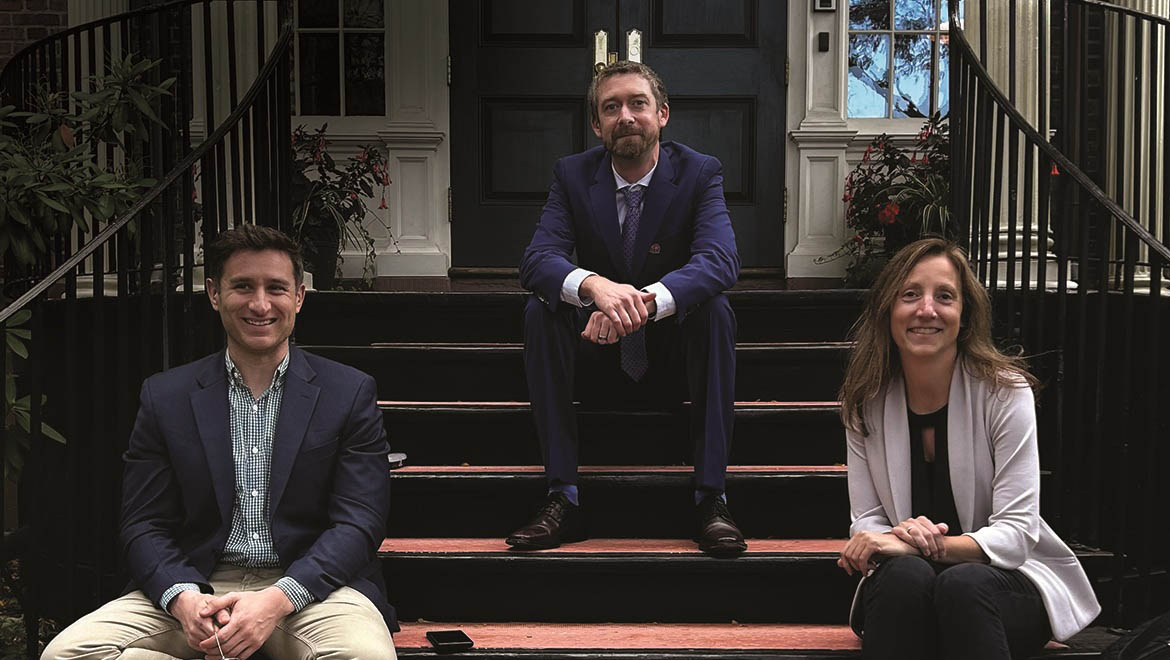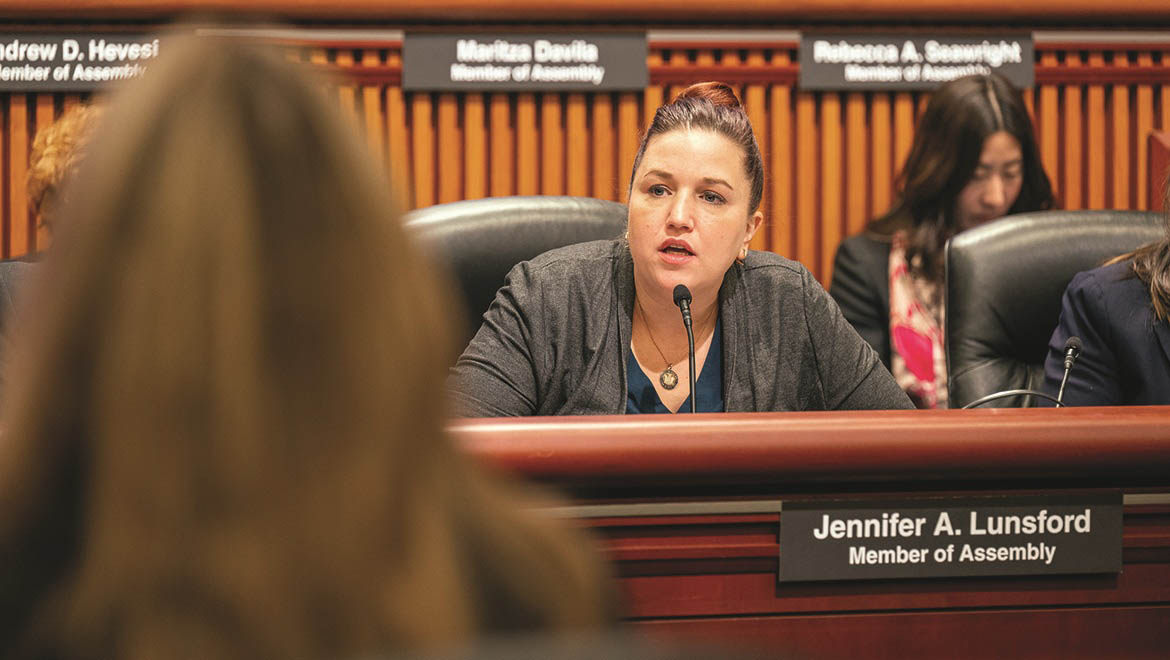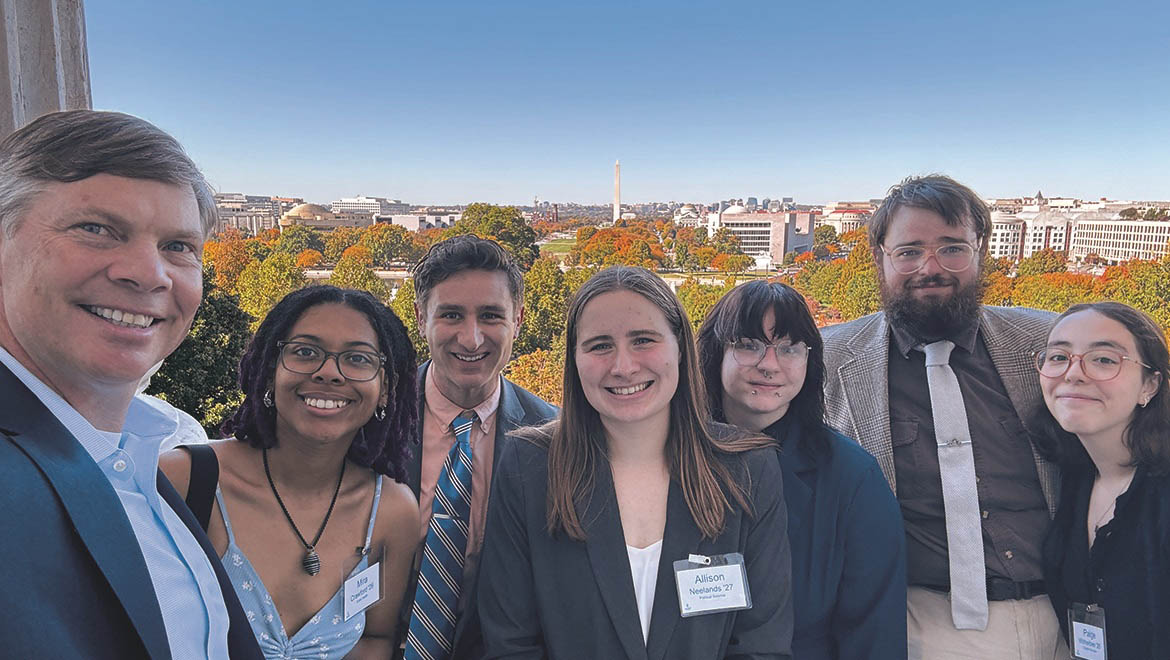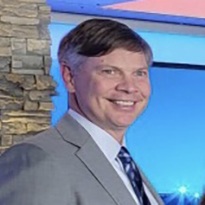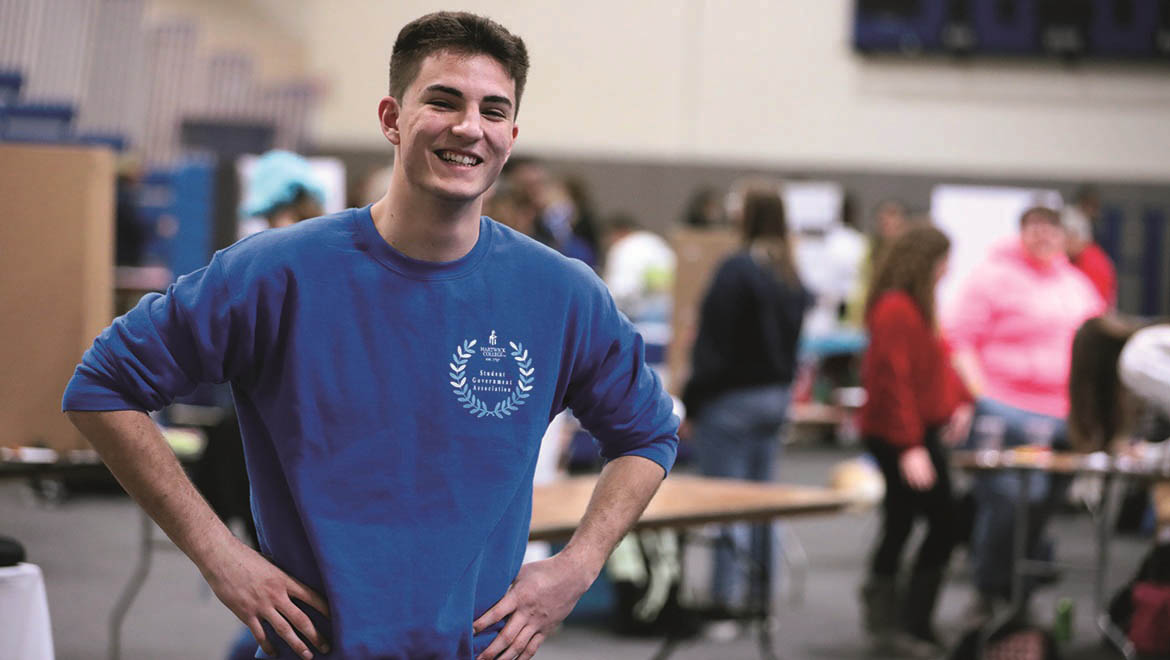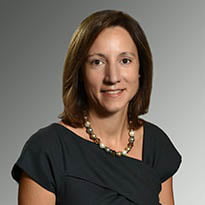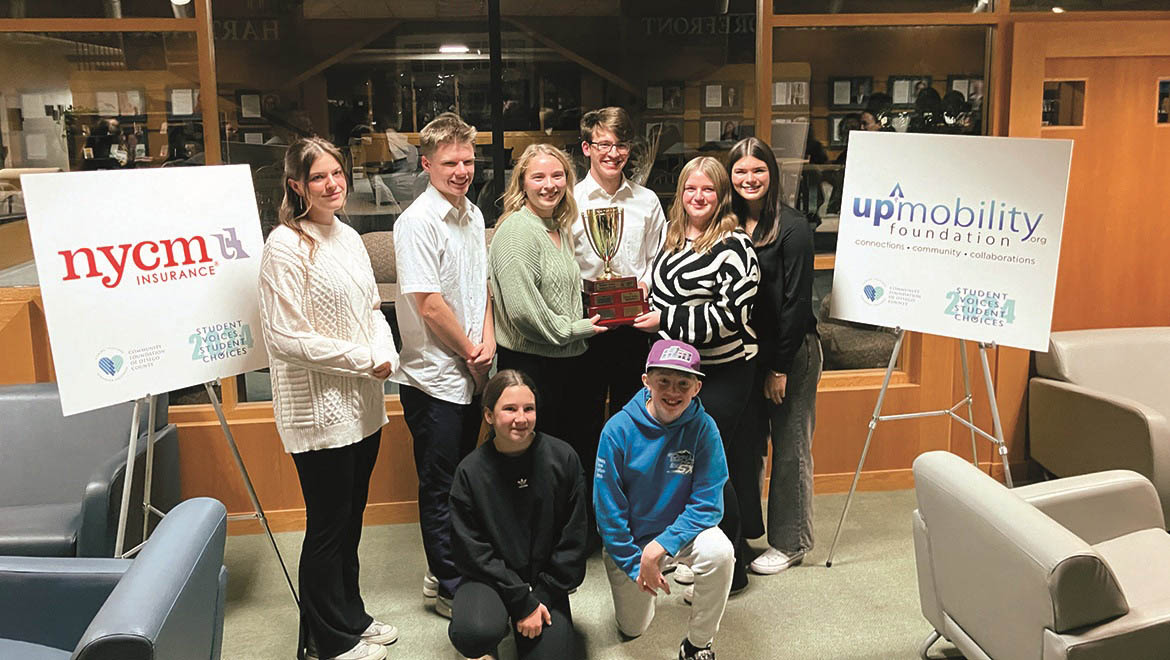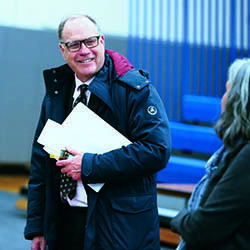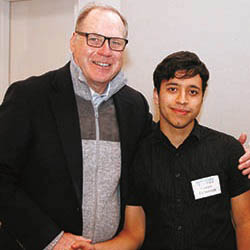Strengthening Democracy
Preparing Civic-Minded Graduates for a Better World
By Mike Barone
HALLMARK OF A HARTWICK education is a set of skills designed for society’s greater good. From critical thinking and determination to lifelong learning and a global understanding, Hartwick students receive a transformative experience as unique as each student who completes it.
As the decades have passed, Hartwick’s commitment to preparing alumni to lead and serve as active, engaged citizens has endured. More recently, Hartwick has evolved to take an even more deliberate approach, ingrained in the College’s DNA. From academic curricula to extracurricular endeavors to employee job descriptions, a sense of communal duty is ever-present on Oyaron Hill.
A prime example is the Hartwick Institute of Public Service (HIPS). Its earliest iteration was borne of an event led by Political Science Chair Laurel Elder and Assistant Professor Matthew Chick. They had just successfully brought people together to discuss the 2020 election as it was unfolding, despite the pandemic’s constraints.
“We saw how beneficial this conversation was for the college and community, and began thinking about what it could look like as a more formal initiative,” said Elder.
They then approached Assistant Professor of Sociology Zachary McKenney, who was also involved in public service work, to gauge his interest in joining them.
“It was important for us to make sure this was interdisciplinary,” added Chick, “to engage as much of the campus as we could.”
McKenney leapt at the opportunity.
“We were already doing a lot of this work on an ad-hoc basis, so this was a chance to formalize things and do even more,” he said.
The concept gained momentum leading up to the inauguration of then-President Darren Reisberg. He had come from the University of Chicago — with its famed Institute of Politics, led by former White House Chief of Staff David Axelrod. So, when the trio approached their new leader and pitched a similar concept, he loved it.
“It was also quite timely,” Elder noted. “The region’s innovation council had recently identified several local needs, including a democracy-strengthening initiative, so we were addressing that nicely.”
Following the institute’s launch, the trio wasted no time getting to work. They held fall voter registration events so that new and returning students could ensure their votes would be counted at school or back home. They hosted “Democracy and Donuts” events each Election Day to help spark voter turnout. They brought guest speakers to campus, from journalists to elected officials and other government leaders. And, they arranged travel opportunities to tour Washington, D.C. and Albany, N.Y., so students could meet alumni and gain a better sense of the kinds of work happening in our national and state capitals.
BUILDING A FAN BASE
The team quickly gained partners across campus, too. In March 2024, they co-hosted an event with Hartwick’s Women and Gender Studies program, which featured female elected officials. They then welcomed New York Times Pulitzer Prize-Winning Investigative Journalist Mike McIntire ’85 as their 2024 Leslie G. Rude Memorial Speaker, which drew students and faculty from multiple departments and disciplines. And this past Election Day, they gratefully received help from Hartwick’s Office of Civic Engagement, led by Associate Director Tim Raimy ’17.
“Tim drove a van on election day, making 15 trips full of students to the polls so that they could vote,” said Elder.
Their efforts resonated with alumni as well, many of whom have found public service to be their life’s calling. To capitalize on those ties, they established a HIPS Leadership Council, making sure it was composed of members from both sides of the political aisle.
One of its earliest supporters was the late New York State Senator James Seward ’73 H’99, a Republican lawmaker who served for three decades. He was a strong advocate from the start, serving as an inaugural councilmember. In fact, it was Seward who encouraged the team to take “politics” out of the name. Instead, he suggested “public service.”
“That was so smart, because it’s much a broader concept,” Elder attested. “It includes any work that’s strengthening our community, our democracy. That’s what we’re doing.”
New York State Assemblymember Jen Lunsford ’04 also lent her voice — literally, as 2023’s Constitution Day speaker for the institute’s grand opening. The eastern Monroe County representative believes it is contextualizing the academic side of the College — and making Hartwick stand out in the process.
“The Institute of Public Service is helping students understand where their interests can be applied in the real world,” explained Lunsford, who genuinely appreciates her time in Oneonta. “I majored in political science and philosophy — but it’s the philosophy portion that’s served me most often. I argue issues and think critically every day. Politics and messaging are very different than the work of government.”
Institute of Public Service 2023 Constitution Day Talk – Jennifer Lunsford ’04
Matthew Chase ’93 is another strong supporter. As CEO and Executive Director of the National Association of Counties (NACo), he leads a team representing America’s 3,069 county governments. Part of the nation’s intergovernmental system, NACo provides a voice for 40,000+ elected officials and 3.6 million county employees — 2% of the U.S. workforce — at the federal level.
Having led NACo since 2012, Chase brings tremendous knowledge, connections and a unique perspective to his role as a Leadership Councilmember.
“People often forget why government exists,” he explained. “Public service is a journey, not a destination. So much of today’s narrative is negative attacks against government, but government exists for the people and to bring order to society.”
Government provides our fundamental building blocks, Chase advised. It is this concept of ordered liberty — how government is supposed to look out for the greater good — that he sees Hartwick delivering in a distinctive, impactful way.
“(The institute) is phenomenal,” Chase attested. “President Mullen’s leadership, the three leading professors…they have such passion and are putting so much energy into it. Then, when you talk to the students, they’re so inspiring.”
Chase has seen this up close, having hosted cohorts at NACo’s Washington, D.C. headquarters and taken them on tours of Capitol Hill.
“We talk with students about the intersection between federal, state and local policy,” he shared. “The (U.S.) system is about the balance, division and sharing of responsibilities and power among levels of government. We show them how these are independent yet intertwined.”
Chase also sees the institute as a competitive edge for Hartwick, something unique in public policy and government studies. Its experiential, hands-on learning helps students explore and discover their passions as they understand how the world really works.
“I love that they’re translating theory into practice, getting their fingernails dirty and really getting in the trenches,” he added.
LINES BLUR ON LOCAL LEVELS
Both Chase and Lunsford agree that party distinctions are less relevant as you move to more regional government levels.
“When you focus on the local level, you often can’t tell who is affiliated with which party,” Lunsford said. “It’s not like what happens in Congress. I do substantially more work that directly impacts the lives of constituents than a congressman does.”
Chase agrees, adding the work happening at the county level is less political and more universal for all citizens. For example, counties invest more than $730 million per year in local communities, supporting such areas as healthcare, human services, veteran services, justice and public safety, public administration and public lands.
“Our counties — both as geographic lines on a map and as public institutions serving the people — are the core building blocks, like puzzle pieces that come together, comprising the United States of America,” he explained.
